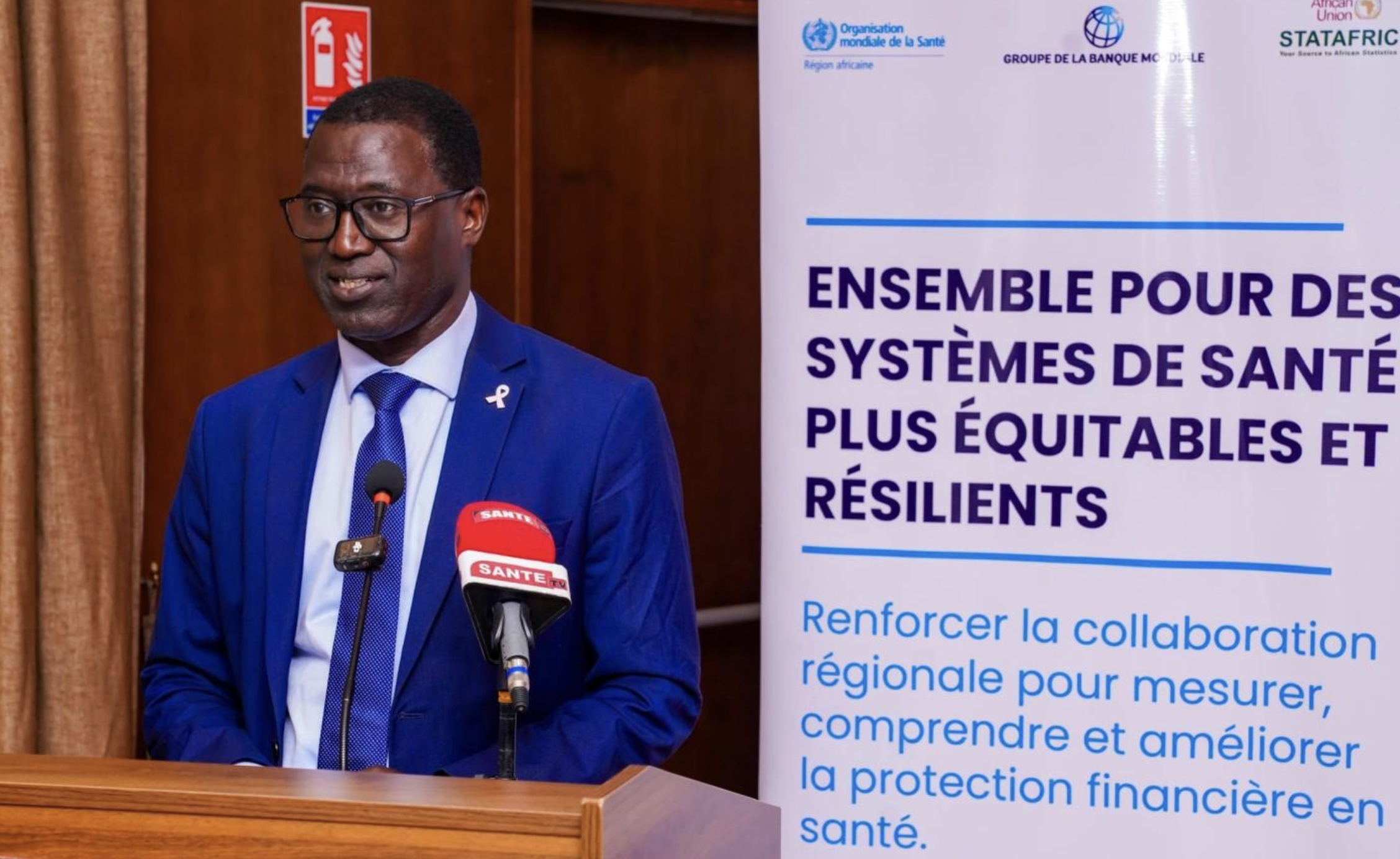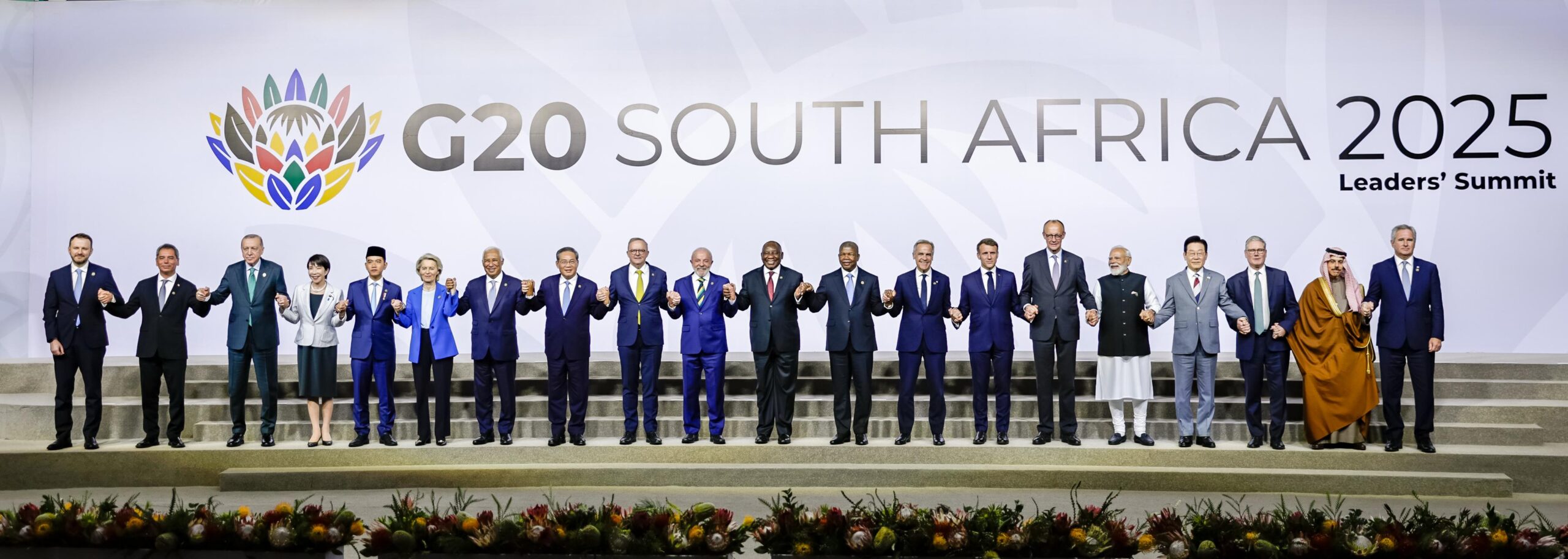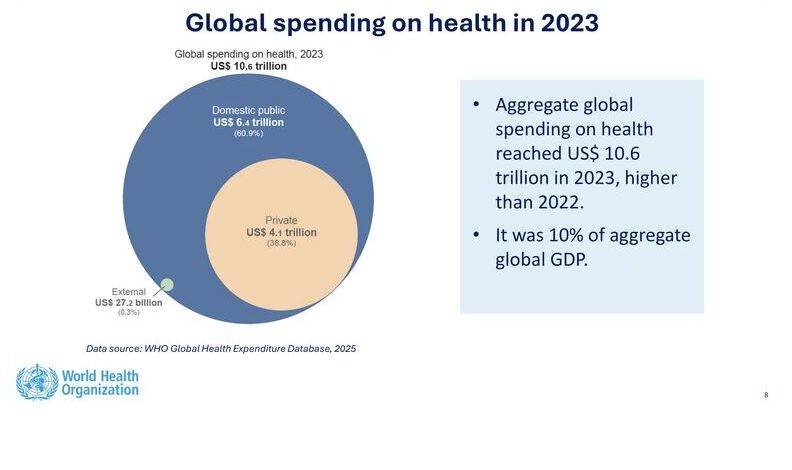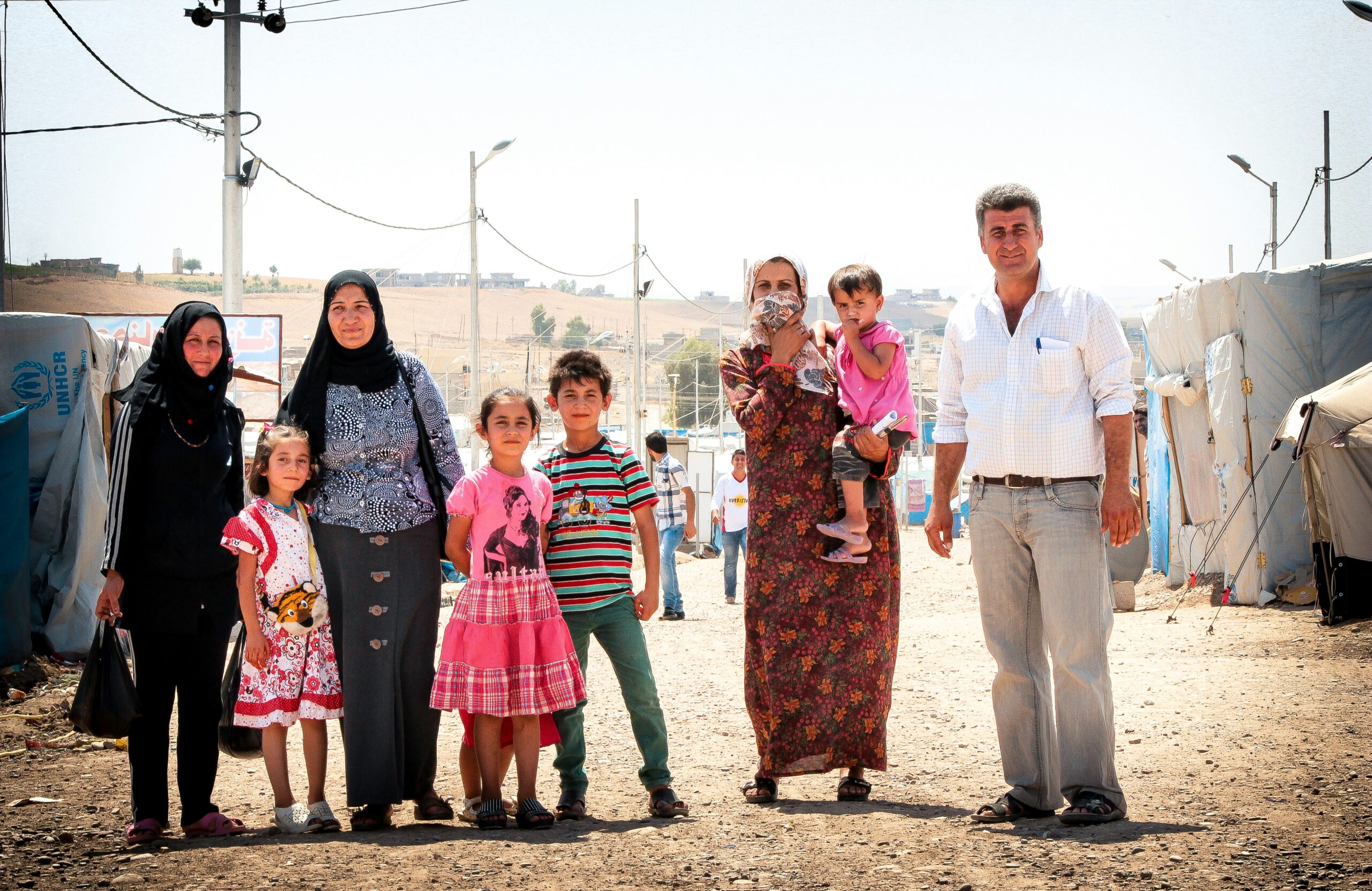The Maldives has made major progress toward Universal Health Coverage (UHC) through expanded public health financing and the establishment of Aasandha, a national insurance program covering both public and private providers. However, the health financing system has...
Reality of Reform: Assessing El Salvador’s 2009 Health Reforms and the Future of Health Under Bukele
This 2025 publication from the Princeton University Library, explores El Salvador’s 2009 Health Reforms. The author posits that despite good intentions, results were disappointing, in part due to lack financing.
Tracking universal health coverage: 2025 global monitoring report
Universal health coverage (UHC) is central to the global commitment to ensure that all people can access quality health services without financial hardship, as articulated in the Sustainable Development Goals (SDGs) with a target date of 2030. As this deadline...

Partnership enhances Africa’s health accounts to advance UHC
WHO and STATAFRIC are collaborating to improve how African countries track health spending and financial protection. Through regional workshops and shared data standards, the initiative builds capacity to generate reliable health statistics that inform policy, promote...

G20 endorses the Lusaka agenda for global health reform
The G20’s reference to the Lusaka Agenda signals growing global momentum for integrated, country-led health systems, but sustained action and investment are urgently needed, say Stine Håheim & Usman Mushtaq in Health Policy Watch.Health Policy Watch reports that...

WHO releases 2025 update of the global health expenditure database
WHO has released updated health expenditure data for 190+ countries, including new visual dashboards and technical resources, covering spending trends from 2000–2023.The World Health Organization has officially launched the 2025 update of the Global Health Expenditure...

Senator Questions PhilHealth’s Fund Management Amid Delayed Benefit Rollouts
Senator Bong Go criticized PhilHealth’s handling of funds, citing its ₱60-billion treasury transfer in 2024 and rejection of a ₱70-billion subsidy in 2025 as setbacks to Universal Health Care implementation. He blamed delayed benefit rollouts for unused funds and...
Analysis on the individual and allocation efficiencies of health resources in China
This study analyzed trends in China’s health resource efficiency using national data and the Proportion Weight Method (PWM) to evaluate multi-input and multi-output conditions. From 2008 to 2021, the efficiency of health institutions improved from 0.77 to 0.91, while...

Austria Launches €500 Million Health Reform Fund to Strengthen Care System
Austria’s coalition government will launch a €500 million-a-year Health Reform Fund to expand primary care, strengthen prevention, and boost digital health services. Welcomed by health agencies, the plan faces Green criticism for lacking structural reform and creating...

Iraq to expand national health insurance to nine provinces in 2026
Iraq will expand its national health insurance system to nine more provinces, starting next year, with full integration planned by 2026. Rollout will be phased, prioritizing government employees, social welfare recipients, people with disabilities, and retirees....

Australia proposes benchmark pricing overhaul for private hospitals
Australia may introduce a benchmark pricing model for private hospital funding by 2028, replacing negotiated contracts between insurers and hospitals. The proposed “Private National Efficient Price” aims to standardize costs and improve transparency but faces industry...

Bulgaria’s 2026 budget plans balance social spending with fiscal limits
Bulgaria’s parliament advanced the 2026 State, Social Insurance, and Health Insurance budgets, projecting 2.7% growth and a 3% deficit. The plans raise wages, pensions, and social contributions, but divide opinion—unions welcome income growth, while employers warn of...
At a crossroads: Prospects for government health financing amidst declining aid
The World Bank’s report delivers an assessment of how low- and lower-middle-income countries are struggling to fund universal health coverage (UHC) as economic uncertainty deepens and development assistance declines. Part of the annual Government Resources and...

Optimizing essential medicines lists to improve health and save costs
Many countries waste health resources by not systematically updating their essential medicines lists. Evidence-based reviews—like Uganda’s, which found savings from smarter diabetes drug choices—can improve access, equity, and health outcomes while freeing funds for...

Estonia to Revise Health Funding Model and Expand Preventive Care
Estonia’s Health Insurance Fund plans 2026 reforms to make health funding fairer and more efficient, linking family doctor payments to patient illness and regional needs. It will cut lab budgets, expand preventive screenings and mental health coverage, and add new...
